I didn’t even know we’d arrived in Morado K’asa until Roxana pulled at my arm.
Clambering past a mother and her baby, we jumped down from the little micro bus and bartered with the driver to sell us tickets for the return journey back to Sucre that afternoon.
Then we shouldered our bags, peeled off our suddenly unnecessary coats under the blazing sun, and walked towards the library.
Morado K’asa is a tiny pueblo a few hours away from Sucre, Bolivia, and is the place where Biblioworks first began. A decade ago, a PeaceCorps volunteer named Megan from the United States was stationed in Morado for two years: during that time, she was asked repeatedly by the community of the pueblo to build a library.
When she returned to the States, she and her brother founded Biblioworks, a non-profit organisation dedicated to promoting literacy and reading to the poorer communities of Bolivia. And in 2005, Morado K’asa was the first pueblo to receive a library.
A new volunteer project: working with Biblioworks in Sucre
My main incentive for spending a month in Sucre was to work with Biblioworks in whatever capacity I could. I’d heard great things about the organisation online and from other travellers, and I was eager to see exactly what I could do to help – hence the visit to Morado K’asa.
But in hindsight, I don’t think I was adequately prepared for quite how different the pueblo was going to be.
Morado K’asa may only be a few hours away from Sucre, but the differences between the two are like night and day. In Bolivia’s capital, there are cars, noise, and traffic; it’s hard to find space to walk on the pavement in amongst the crowds; and you’re never more than a few steps from groups of chattering children, elderly beggars and an ever present sense of things happening.
In Morado, there is silence. At first, at least. Within our minute walk to the library, I spied about/maybe two lone figures walking along, but at least seven different types of animal. Pigs lounged against the side of buildings, dogs slept in the dust, donkeys and horses grazed in the fields, chickens pecked at invisible grain, hiding in the mud, and cats prowled behind them. Occasionally a few cows would lumber past.
Roxana and I sat in the empty library and surveyed the stacked shelves. We lunched on Tupperware boxes of cold chicken, potatoes and salad, and I questioned Roxy relentlessly about Morado. How many people lived here? What did they do with their lives? And where actually were they?!
Essentially, after months of busy city life, I was finding it difficult to understand quite how rural and calm the lives of the Morado K’asa community really are.
I didn’t know how the animals could outnumber the people. How the pigs and the dogs could sleep in the middle of the street, in no danger of ever being hit by a passing car.
I didn’t understand how we could walk past a farmer with a huge collection of wood strapped to his back, or greet a group of women sitting on a doorstep, and nobody questioned my presence in their pueblo. After months of being ‘noticed’ by locals all over South America, why was the sole gringa in a rural Bolivian community of two hundred people not a talking point?
Read more: My Ultimate Travel Guide to Backpacking Bolivia
We only spent a few hours in Morado K’asa that day, chatting to a few children and surveying the empty streets, but it was enough to alert me to the fact that this place was worlds away from everything I’d seen thus far in South America.
Going back to Morado K’asa – alone.
A week later, the same journey repeated itself, although this time it was somewhat different.
I was by myself, to start with, jostling for space next to a man with a huge bag of potatoes stowed between his feet; and the ride took over three hours, because we stopped for about 45 minutes in an attempt to help out with an overturned bus on the side of the road.
This time, I was visiting Morado K’asa for much longer, with a plan in place to spend two days helping in the library, possibly running a book club, and helping the kids with their reading.
But when I finally arrived on Morado’s quiet central street, I was acutely aware that I had no idea what the next few days held in store for me.
Luckily, Marisol, the sixteen year old librarian, greeted me with a wave and took me across to Doña Justina’s house, where I’d be spending the next couple of nights. Or, more specifically, she knocked on a door and left me in the care of the ten year old who answered it.
A taste of the Morado K’asa life
Carolina looked at me shyly and with a certain amount of confusion. Behind her, a dark room, a stone floor, and two low, metal framed beds. As I edged my way across the threshold, two figures became apparent; Doña Justina, lying in bed under a multitude of blankets, and her husband in a chair beside her. The woman’s mouth was covered with coca leaves, and I barely understood her mumbled greeting.
Carolina led me through the room and out into a small courtyard, open to the bright blue sky. I noted a small puppy and a tinier kitten, playing with a corn husk; an array of children’s clothes, hanging on the washing line; a large domed outdoor oven; a stone basin set in the middle of the yard.
We reached a small bedroom – clearly once a boy’s room, with walls covered in cut out adverts featuring women in various provocative poses. Carolina gestured I should put my bags down on the straw-filled mattress, and then I followed her outside again.
Already I was beginning to realise that tailing a ten year old was how my time in Morado was going to go.
The rest of my evening unfolded in a bit of a blur. Exhausted from my day of bumpy bus riding, I spent a few hours in the library, helping two girls with their English homework – translating various English paragraphs into Spanish.
The more I dictated, though, the more I realised that maybe I was doing way too much. Because when I asked the girls if they understood the English passages, they both shook their heads emphatically.
“So… how is me translating it for you going to help?”
They giggled, scooped up their papers, and headed out of the library door.
Eventually, after being ignored by most of the excitable Morado children in the library, Carolina appeared in the doorway, beckoning for me to follow her. We walked through the darkness to her house, and I was presented with a beaming Doña Justina, pointing to a bowl of rice, corn, potatoes, and a fried egg on the kitchen table.
The girls in the office had told me I needed to take some particular things with me to Morado. Some warm clothes, as it tends to get cold at night out in the countryside, and also suncream and a hat, as the sun is conversely very strong during the day. But when they also said I needed to take some food – “just the things you’d want to eat, like vegetables or meat” – I was confused.
I’m not the fussiest of eaters. Surely whatever Doña Justina was cooking for her family would be equally sufficient for me?
But the difference is that the rural Bolivian diet is focused almost exclusively around starch. Potatoes, rice, pasta, maize, and not much else – and while there’s nothing wrong with these foodstuffs, my body is used to consuming other food groups that the people of Morado just aren’t.
While we ate, I asked Carolina what her favourite food was.
“This,” she said, pointing to her plate.
By the time I awoke the next morning, I knew things didn’t feel right.
It’s a hard thing for me to say, though. I volunteer in countless locations in different countries, each with their downsides and simultaneously huge benefits, and normally I can cope just fine.
But I had three major issues in Morado K’asa, and they were all totally unexpected.
Issue #1: being unable to speak
Firstly, I hadn’t anticipated how little I’d be able to communicate.
On our initial visit to the pueblo, Roxana had spoken Spanish with everyone. Being Bolivian, it was obviously an easy thing for her. When I arrived for the second time, accompanied solely by my fair-to-middling Spanish skills, I realised that I was somewhat back to basics again.
Because the first language of the vast majority of people in rural Bolivia is Quechua.
Of course, living in a Spanish-speaking country means that most of them speak Spanish too – but it’s not their immediate choice. Many of the children living in Morado aren’t even aware that they’re speaking two languages when they talk – which means their resulting hybrid of Quechua-Spanish is really tricky for non-native speakers, like me, to understand.
But it’s not just the children. Doña Justina and her husband clearly speak Quechua so much of the time with their family and community that even though they could speak Spanish, I barely understood it when they did.
Of course, listening to Quechua and attempting to formulate replies in Spanish was preferable to not talking at all. Which was a situation I found myself in for the vast majority of my single full day in Morado.
Issue #2: being alone
This was the second thing I hadn’t quite realised about visiting Morado K’asa: how much ‘down-time’ I was going to have. While this had been mentioned in a passing comment by one of the girls at the office, I hadn’t quite taken it literally.
But Doña Justina fed me hot sweet tea and dry bread for breakfast, gave me a key for the house’s main padlock, and instructed me to head for the library. It was 8am. And when I arrived, I realised that I was the only person there.
I sat in the empty library for four hours, leafing my way through various books and occasionally glancing through the open door in case any children appeared. They didn’t. Being at school for most of the day was something of a distraction, I guess…
Eventually, after I’d eaten a lonely lunch back at Doña Justina’s house and fallen asleep for a few hours, Carolina dragged me back to the library again. We played checkers, and I helped a few matted-haired kids wash their faces and brush their teeth. But the time dragged, and as afternoon became evening, I realised just how little there was for me to do.
And it didn’t help that I was supremely uncomfortable.
Issue #3: being ill
I won’t go into details, but there’s a certain infection I suffer from – not helped by unsanitary bathrooms – and I managed to succumb to the dreaded thing while I was in Morado. Doña Justina’s bathroom wasn’t the best place to be suffering from an infection, either. Their shower didn’t work, so I didn’t have a chance to wash properly for two days.
Knowing that I was at least three hours distance from any kind of doctor or pharmacy just made things worse, as often the more stressed I am, the worse it gets. And it escalated really quickly, so that by the end of my first full day in the pueblo, I knew I had to get medication asap. If that meant heading back to Sucre, so be it.
What exactly was wrong with me?
There were a number of things I somehow found impossible to cope with in Morado. Getting sick was a pretty big catalyst – but as for the rest? Bland food and a bit of dirt aren’t usually factors that normally convince me I can’t handle a place.
So what was it?
On my journey back to Sucre, feeling awful for leaving before I was supposed to, I suddenly realised what had been bothering me for the duration of the time I’d spent in Morado K’asa.
They didn’t need me there.
Everything fell into place after that. The total lack of people’s surprise at my presence in the pueblo, the feeling of being completely unnecessary in the library, the children clearly not desiring any help with their reading: it had made me feel like I didn’t have anything to offer, which duly resulted in feeling totally redundant.
And weirdly enough, all these things actually pointed towards the aim of the Biblioworks initiative. The Morado K’asa library has become so self-sufficient that books are more interesting than a random gringa in the community.
A striking difference between Bolivian children
One afternoon in Sucre, I struck up a friendship with two street kids selling magazines in a local cafe. We played a game whereby they scrolled endlessly through the photos on my iPad.
Every now and again I’d explain what we were looking at.
“Eso es Colombia. Conoscen Colombia?” I said to them. They shook their heads. Never heard of Colombia. That made more than enough sense — it’s pretty far away. But when we reached my recent photos of La Paz:
“Este lugar es La Paz. Saben La Paz? Es muy famoso – es un grand cuidad en Bolivia?” They shook their heads again. Bolivia’s pseudo-capital was only twelve hours away by bus, and they had absolutely no clue the place even existed.
The kids of Morado K’asa may have only been to Sucre a handful of times, but thanks to the library, they’re able to travel around the world: through atlases, through books, and through their own keen interest. They explore different countries, different kinds of people, with such eagerness that meeting someone from those countries isn’t even of as much importance – at the moment, anyway.
Hopefully though, as these kids grow older, they’ll keep this continued interest in the world around them. And maybe the library where they spent their afternoons as children will remain a constant presence in their lives.
Putting my skills to better use
As for my volunteering abilities at Morado K’asa? While I feel I could have been a lot more proactive with the situation, there was a deeper-set feeling that I couldn’t ignore. After five months of teaching in Ecuador, I simply wasn’t excited about taking up that position again. It was something like teaching burnout: I didn’t have any desire to rally these kids from the books and the games they were clearly interested in, without my help, or try to commandeer some kind of English class.
Not to mention that, when your health gets compromised, you develop a different set of priorities.
Morado K’asa is an incredible community, and I’m really glad I was able to visit. But I think my ability to help is better directed in promoting Biblioworks in a way I know and understand: through social media.
So I’m trying something different. Instead of working on site in Morado, I’m spending my time in the Sucre office, working on the Biblioworks social media accounts. I’m helping out with their Facebook and Twitter pages, trying to foster a better sense of community with their audiences, and educating the staff about how to make themselves more present online – something I seem to be getting quite a lot of practice in at the moment.
I never would have thought I’d be taking on this role in Bolivia – but then again, a lot of unexpected things happen when you’re travelling! So if you’re ever in Bolivia and fancy a bit of volunteering, maybe Sucre and Biblioworks is the place to come. They’re an wonderful organisation, doing great things for the rural communities in Bolivia. And there seems to be a role for everyone here.

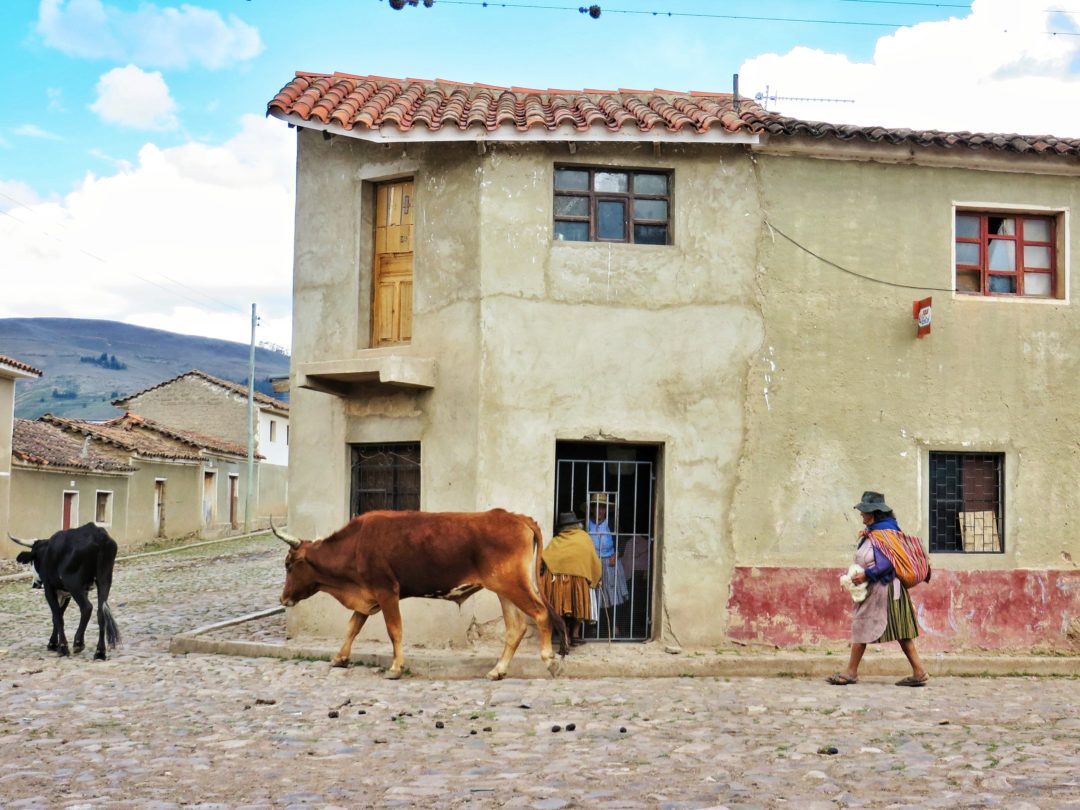
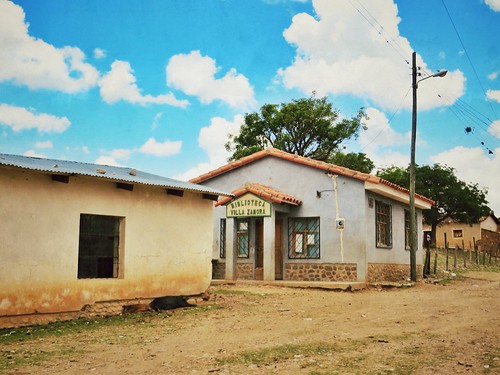
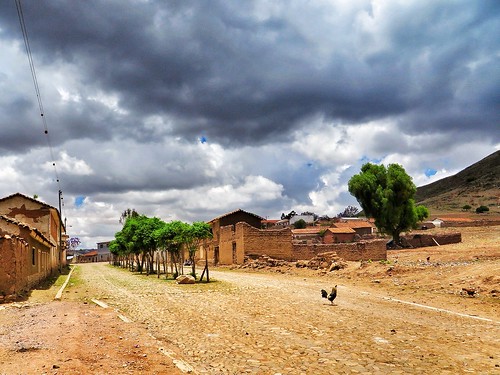
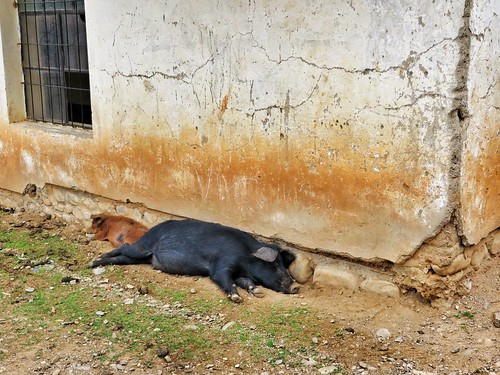
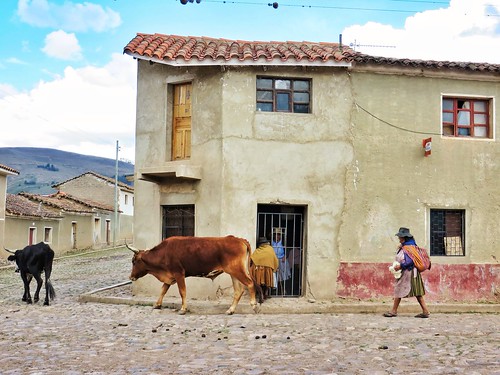
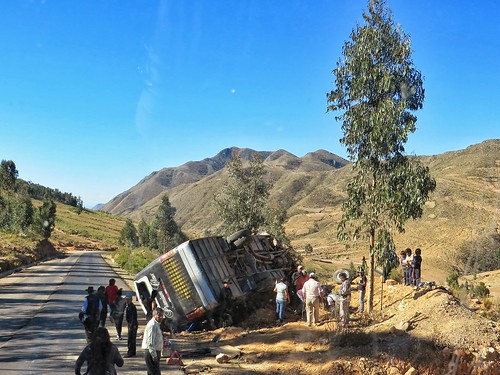
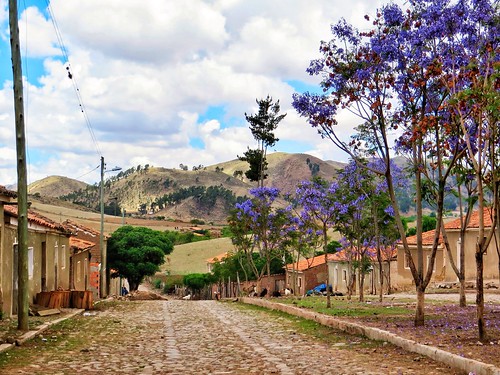
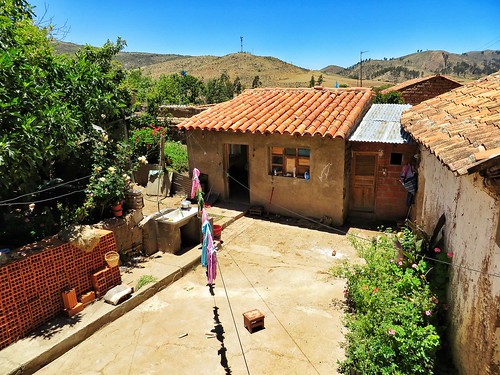
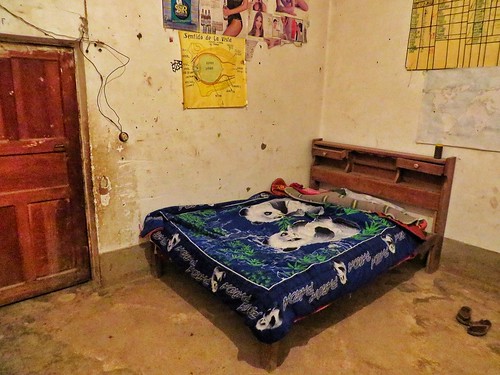
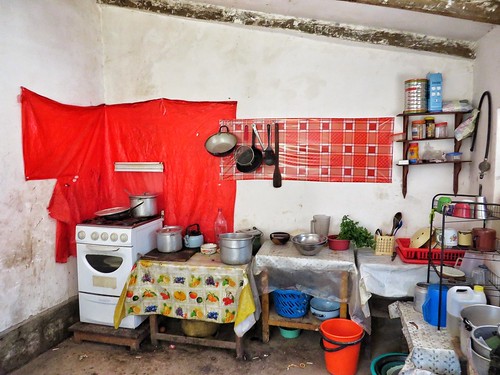
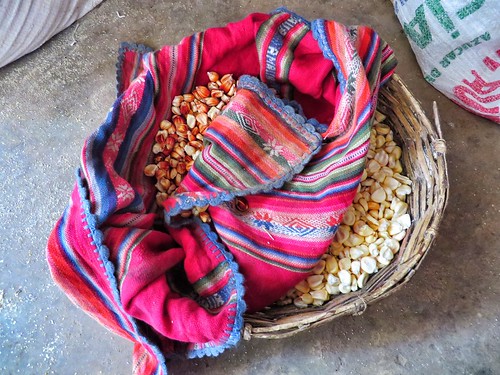

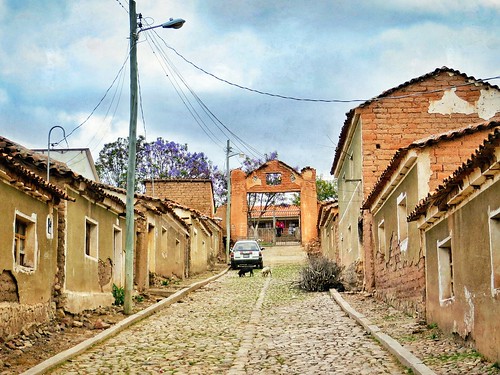
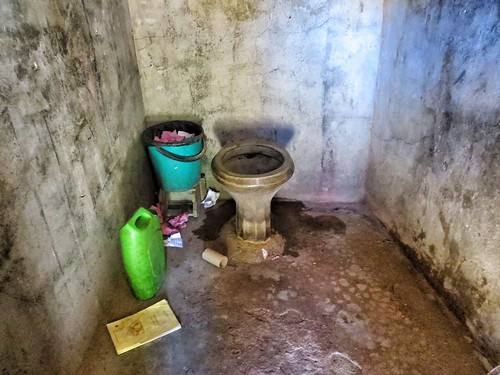
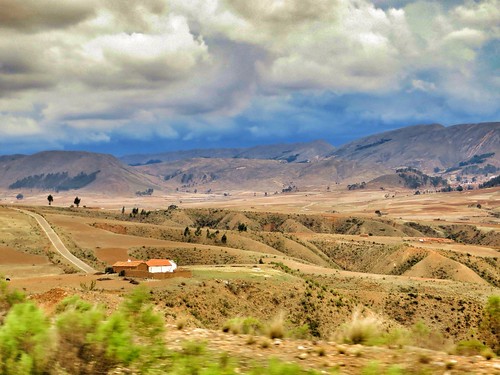


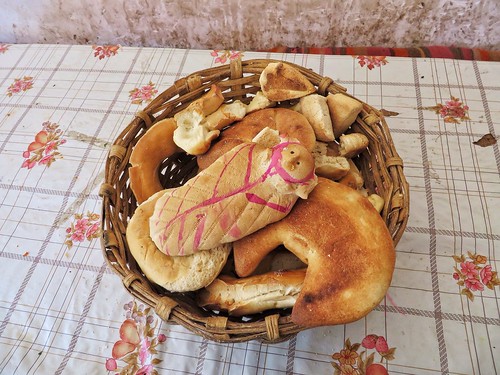
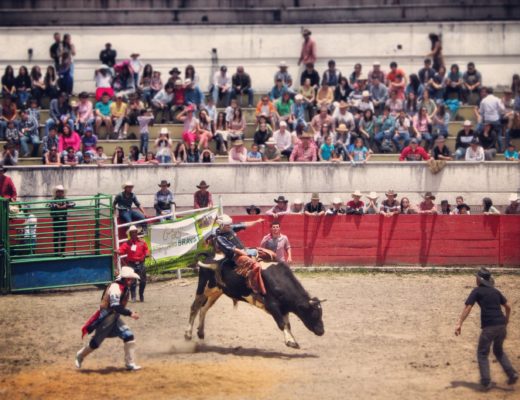
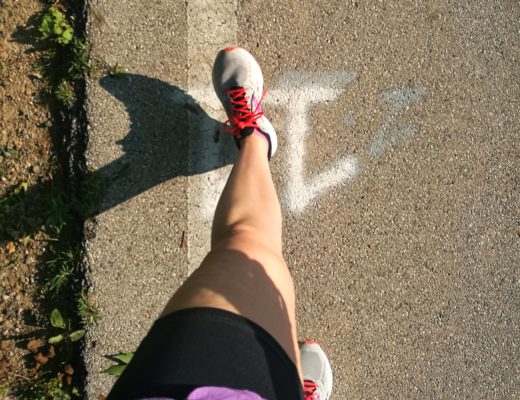
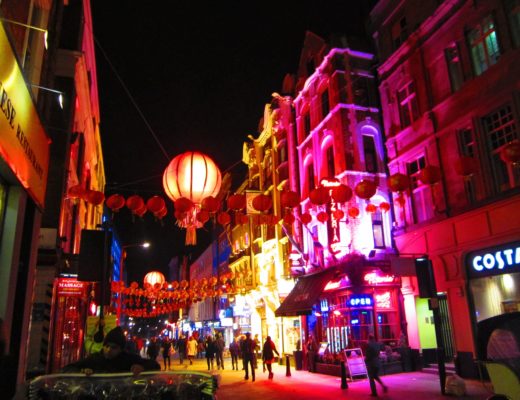
12 Comments
Kiersten - The Blonde Abroad
November 28, 2013 at 12:31 amI literally just had a flashback reading this. I was also incredibly ill while visiting Morado and it wasn’t easy feeling so far from the city. Funny how our perspective of “being close to safety” changes from home to a developing country’s capital. I only spent one weekend in Morado as well and had very similar feelings as you. I grew up on a farm so the loneliness was not unfamiliar, but the children and the library definitely had become somewhat self-sustained. I didn’t feel like I had something to offer in the town. Glad you had the experience and got to see rural Bolivia though!
Flora
December 19, 2013 at 3:45 pmSo great to hear this brought back memories for you Kiersten! I really enjoyed experiencing Morado, but there were just too many levels of difficulty for me to go back again – at that time, anyway. You’re so right – it’s crazy how quickly your comfort levels can switch.
Shaz
November 28, 2013 at 2:20 amI like that you still managed to find a way to help after your unfortunate experience. It looks like a beautiful place, though very different!
Flora
December 19, 2013 at 3:46 pmVery different indeed, Shaz! And very beautiful too 🙂
Kiara Gallop
November 28, 2013 at 1:46 pmI’m travelling to south America in April and am looking for volunteer projects (am over 30 so too old to get a working visa!) but don’t want to teach so volunteering for Biblioworks in Sucre may be worth looking into. Thanks for sharing 🙂 Any other non-teaching projects you’d recommend? Don’t mind getting my hands dirty/working outside. Also would say my Spanish is beginner level (completed a GSCE in June but my speaking/listening still desperately need work!), how proficient do you need to be with regards to your command of the language? x
Flora
December 19, 2013 at 3:49 pmThere are so many volunteering options in South America, Kiara, so I’m sure you’ll be able to find something non-teaching based! In fact, I’ve only done two projects on the continent so far that explicitly focused on teaching – everything else is wonderfully varied. I think I emailed you about this with some suggestions a while back, but shoot me another email and I’ll give you some more ideas and links to a few good websites 🙂
In terms of the Spanish, I’ve met a lot of travellers who’ve volunteered in different South Am countries with little to no Spanish, so I don’t think you’ll have much trouble. Bear in mind I was basically mute in the language when I arrived in Feb, and now I’d like to think I’m definitely nearer to fluency than not!
Robyn
January 5, 2014 at 1:02 amHello Kiara and Flora!
I mentioned to Flora a few weeks ago, that I too volunteered with Biblioworks last winter and also visited Morado. Her fantastic pictures reminded me of the stark environment I also experienced.
I found out about BW through this website which might also help you sift through some SA volunteer opportunities. There are lots of options here, not just teaching.
good luck!
http://www.volunteersouthamerica.net/
Flora
January 18, 2014 at 11:38 pmGreat suggestion Robyn – that’s a site I’ve used a great deal in the last year too!
Sally
December 2, 2013 at 12:45 amThis was such an interesting view into rural Bolivian life and I find it so hard to imagine only eating starches. It’s easy to forget how little some parts of the world need just to get by.
Hopefully your next project will be a bit more fulfilling, it’s no fun to “volunteer” and be more of a burden than a help. I think you’re taking a good route, though, with the social media aspect. Good luck with it!
Flora
December 19, 2013 at 3:55 pmOnly eating starchy foods felt like such a small thing to fixate on, but when it was combined with everything else it really got to me! Thanks for the understanding sentiment, Sally 🙂
Kelly Rogers
April 22, 2014 at 6:46 amI’m glad that you are better now. But I’m very glad you were still able to help Biblioworks.
Flora
April 25, 2014 at 6:58 pmThanks Kelly – I’m glad I was able to help too, even if it wasn’t as much as I initially intended.